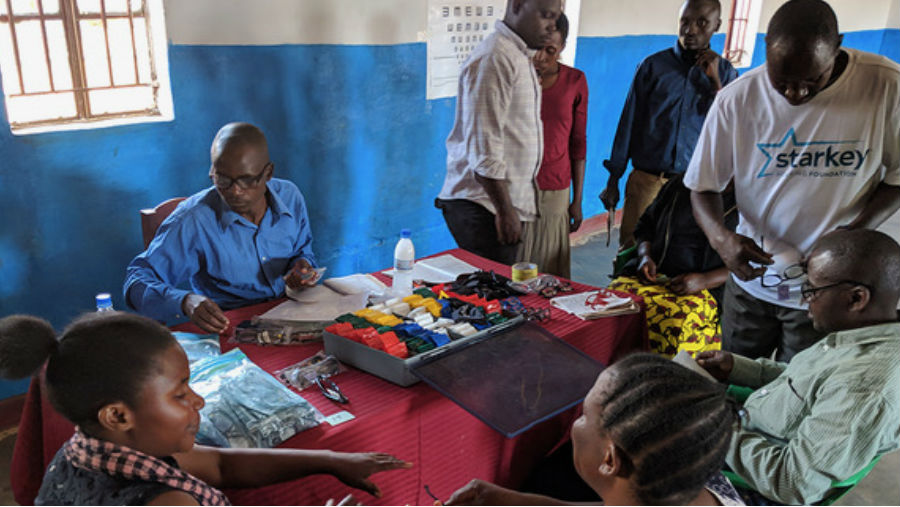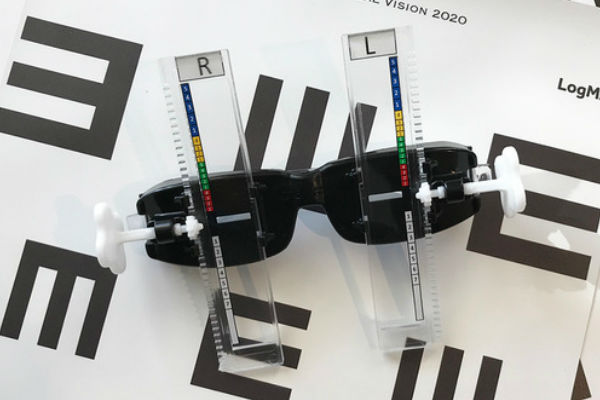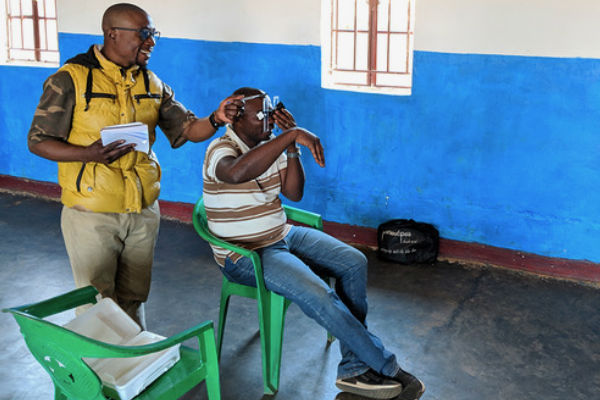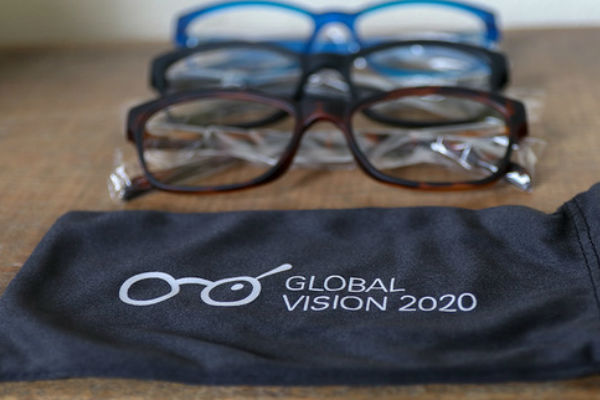Join a powerful, unprecedented alliance for better eye health for all.
Join IAPB-
Choose an alternate language here

Our introduction to this international network has been a crucial step in our ability to expand programmes and reach a growing number of base of the pyramid (BoP) citizens. From the time we attended our first IAPB Council of Members meeting in September 2018, until now, the warm welcome, and continued interest we have received, has helped us develop a vibrant network in a short time.
Kevin White, our Founder, as an active duty United States Marine, was assigned to the Humanitarian and Civic Assistance department within the European and African theatres of operation. His first humanitarian outreach project was to Morocco where a U.S. Military Hospital set up in a small town. People from the surrounding communities came from miles away to get dental work, receive medical attention, and get eyeglasses. As a lifelong wearer of eyeglasses, Kevin was drawn to the optical outreach. This outreach consisted of using an auto-refractor on the patients, and then finding the closest match from the 1,000 used frames the doctors had brought with them. As a professional logistician, Kevin was offended by the inefficiencies of this approach: rarely (if ever) did the patient receive an accurate prescription in both eyes, and often the patient would try to choose the frame style they liked, versus the prescription they needed. That was when he first became interested in finding a better way to deliver prescription eyeglasses to people living at the BoP. Over the past 14 years, after retiring from the Marine Corps, he concentrated his energies on finding ways to decrease logistics hurdles which led him to the idea of combining self-refraction with the delivery of standard eyeglasses.

He developed the USeeTM, a diagnostic tool for determining the prescription of a person with uncorrected refractive error (URE). Simply put on the USee vision screening device, have the client dial in the correct prescription, snap in the corresponding lenses from the lens kit into a stylish pair of frames, and wear. This systematic and inexpensive process makes it possible to support the existing eye-health community and distribute prescription eyeglasses to the areas of the world without access to basic eye care.
With the USee system we have been able to simplify the distribution of prescription eyeglasses. The simplicity of the device lends itself to exponentially increasing the number of trained refractionists (eyeglasses dispenser). The training for USee use is approximately half a day; once supplied with a USee kit, a newly trained refractionist can deliver 250 prescription eyeglasses with the lenses that meet the needs of a large majority of people. Also included are 250 reading glasses of various powers. Distribution of both distance lenses and readers is statistically determined to meet the majority of clients’ needs.
We have successfully field-tested distributions in several nations, and a Johns Hopkins University clinical trial has proven the accuracy of the USee.


We are currently attempting to set up logistics and supply hubs throughout several regions of Africa to better facilitate supplying partners, however, kits are available now.
Poor vision effects every aspect of one’s life. Educational, employment, safety, quality of life – all suffer with blurry vision. It is now possible to solve this issue easily, rapidly, and inexpensively. We are committed to helping organizations around the world achieve this goal.